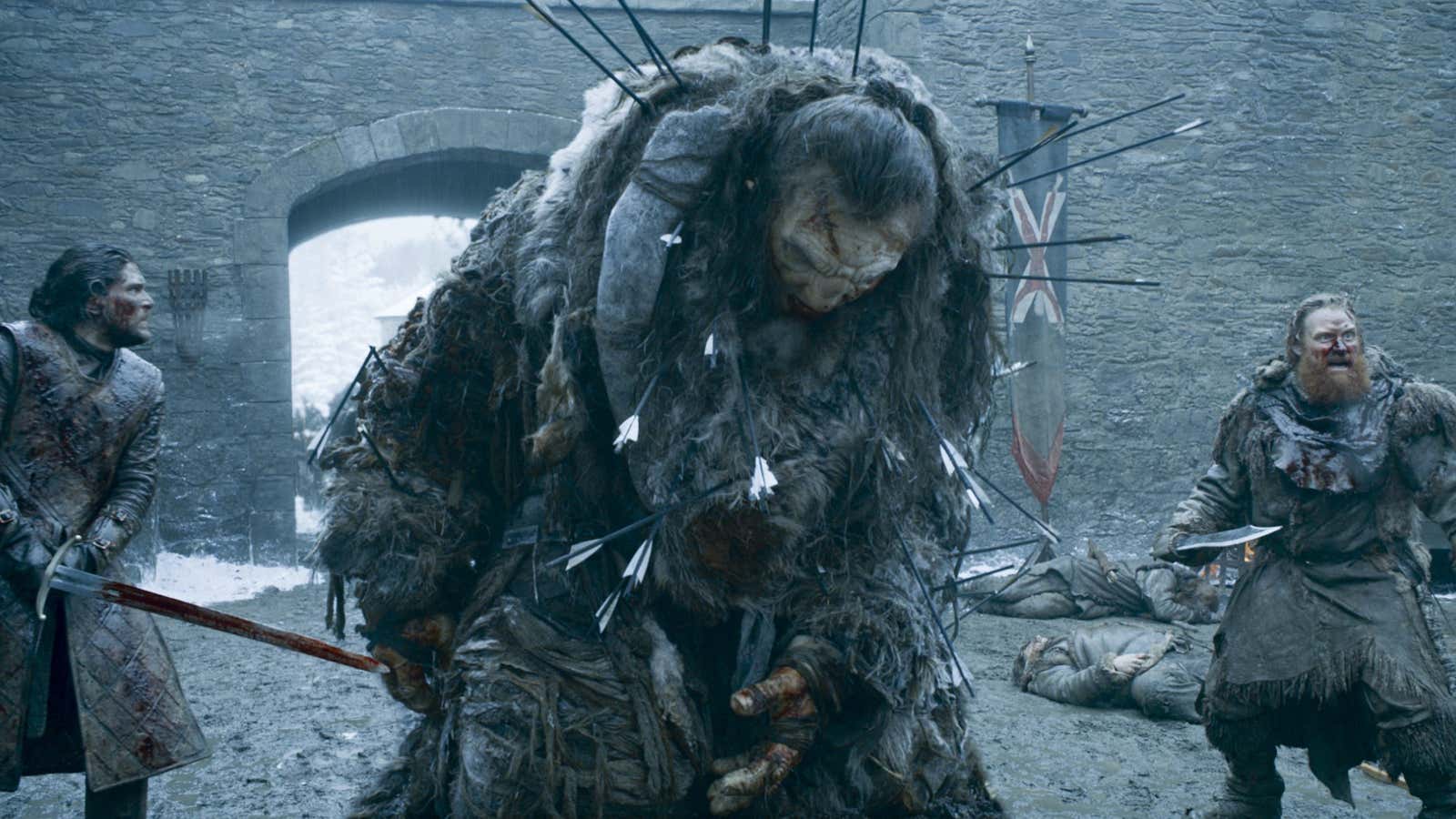The United Kingdom’s vote to leave the European Union yesterday, which collapsed the British pound and sent global markets into chaos, will have far-reaching consequences beyond the immediate economic turmoil. One of these is a potential “major blow” to the country’s vibrant film and television industries.
“This decision has just blown up our foundation,” said Michael Ryan, chairman of the Independent Film & Television Alliance, in a statement to Variety, the Hollywood Reporter, and other entertainment outlets. “As of today, we no longer know how our relationships with co-producers, financiers and distributors will work, whether new taxes will be dropped on our activities in the rest of Europe or how production financing is going to be raised without any input from European funding agencies.”
Last month, hundreds of British actors, artists, and celebrities signed a letter in the Telegraph urging the UK to remain in the European Union. Among its signatories were Sir Patrick Stewart, Benedict Cumberbatch, and Helena Bonham Carter.
“From the smallest gallery to the biggest blockbuster, many of us have worked on projects that would never have happened without EU funding or collaborating across borders,” the letter read.
Variety reported that the Brexit means Britain will no longer receive funding from the Media Programme, the European Union’s support arm for TV and film that invested €40 million ($44.3 million) in 2014 and 2015 to give British films distribution in other countries. The Brexit also creates a slew of logistical issues for productions that want to film in the UK, like obtaining work permits and visas, and moving film equipment and costumes across borders.
Before the vote yesterday, Foreign Policy magazine reported that a Brexit would be especially bad news for HBO’s Game of Thrones—a sprawling production that films many scenes in Northern Ireland. The show is partially funded by the European Union’s European Regional Development Fund. Now that the UK has left the EU, it stands to reason that Game of Thrones will no longer qualify for that investment, thus making the production costlier and jeopardizing its relationship with Northern Ireland. (That said, the Brexit won’t be instantaneous, and could take years, or even decades, to complete—Game of Thrones would long be over by then.)
HBO did not immediately respond to a request for comment.
It’s entirely possible—likely, even—that the show will find alternative funding and continue filming in Northern Ireland for its final two seasons. But not every film or TV production will be as lucky as the hugely profitable and therefore versatile Game of Thrones. Without support from the EU, Game of Thrones is the type of massive production that the UK may not see again for a long time.
Perhaps, though, there’s a bit of irony: The rapidly falling value of the British pound against the US dollar could make it cheaper for American productions to film in the UK. But with the country’s uncertainty and the potential of many other Brexit-related problems, it might not be worth it.
